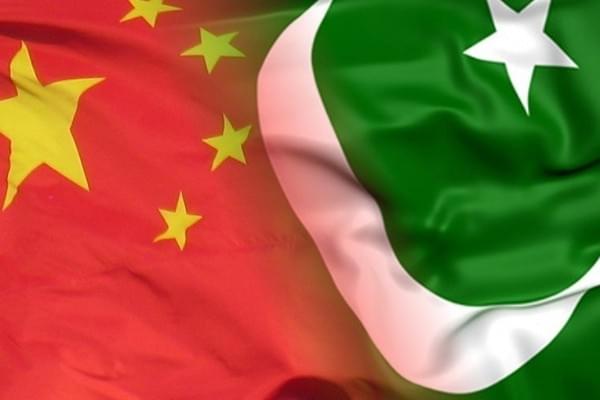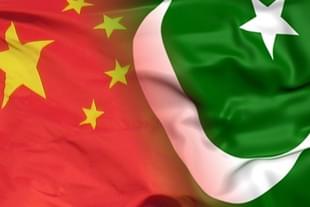News Brief
After Gwadar, China Has Its Eyes Set On Key Karachi Port To Control Regional Trade And Influence Geopolitics
IANS
Sep 28, 2021, 06:30 PM | Updated 10:53 PM IST
Save & read from anywhere!
Bookmark stories for easy access on any device or the Swarajya app.


After taking control of Gwadar port under the China Pakistan Economic Corridor (CPEC) projects, China has now set its eyes on Karachi, a premium port in South Asia.
Gwadar and Karachi will provide China access to the Arabian Sea, reducing its dependence on the US dominated Malacca straits to channel its burgeoning trade. Besides, by controlling both the key ports, China can influence landlocked countries of Central Asia, which are also looking at the Iranian port of Chabahar, where India has stakes, as a coastal outlet for trade.
China has moved to take control of the Karachi Coastal Comprehensive Development Zone (KCCDZ) under the CPEC framework. Pakistan's Imran Khan government has decided to "award" its project of KCCDZ to China. China will be investing $3.5 billion in the project as "direct Chinese investment" as reported by the Pakistani daily Dawn. .
Overwhelmed by the Chinese decision, Prime Minister Khan has described the move as another game-changing event. Khan is apparently pleased that cash-strapped Pakistan will not have to spend a single penny unlike other CPEC projects.
An elated Pakistani Prime Minister announced that the KCCDZ, "will put Karachi at par with developed port cities."
"And the best thing of this project is that it's solely based on foreign (Chinese) investment without any loan," added Pakistan's Minister for Mar-i-time Affairs Syed Ali Zaidi, as reported by Dawn.
China has so far declined to restructure $3 billion in loans that Islamabad owes Beijing. It has, in fact, pleaded Beijing to forgive debt liabilities owed to China-funded energy projects established under the CPEC. In addition to the $3 billion in principal payments, the dividend payments also stand at $1.5 billion during the next three fiscal years. As the country continues to struggle to attract investment, policymakers in Pakistan have come increasingly to rely on Chinese capital. According to the United Nations 2020 World Investment Report China was by far the largest contributor of foreign direct investment (FDI) to Pakistan, most of it through CPEC.
According to Pakistani experts, the Imran Khan government has offered Karachi coastal areas, which include ports to China on the platter. This multibillion-dollar mega KCCDZ project will be will be undertaken in partnership with Karachi Port Trust (KPT).
"Developed on a reclaimed area of approximately 640 hectares on the western backwaters marsh land of KPT, KCCDZ will be a flagship project for not only Pakistan but the entire region," said an official statement.
It is believed that with the direct Chinese investment, China aims to overhaul the city's seaboard with new berths for the port, a new fishery port and a majestic harbour bridge connecting it with Manora islands and Sandspit beach.
"The Chinese work so fast and I guess that it would not take more than five or six years to complete the project. Under the agreed plan, we would relocate some 20,000 to 25,000 families from Machhar Colony and relocate them. Believe me it's a huge thing for Pakistan," said the minister Syed Ali Zaidi.
But curiously the decision was made in haste, and even the provincial government of Sindh was taken into confidence. Last year, the Imran Khan government took control of the twin islands of Bundal and Buddo through a presidential ordinance despite strong objections by the Sindh government and activists. Jeay Sindh Muttahida Maha (JSMM), a declared terrorist organisation by Pakistan, is an organisation fighting for the rights of Sindhis. They have feared that these two islands will be given to China and they were proved right. Now these two strategically located islands are part of the KCCDZ plan.
Last year, Baloch and Sindhi pro-freedom organizations announced their union under one umbrella to fight the CPEC project.
Anti-China protests have been taking place across Sindh, Balochistan, Khyber Pakhtunkhwa and Gilgit Baltistan. The Armed rebel groups have intensified their attacks on Chinese nationals and projects. The Chinese are worried about the CPEC. According to Global Times, analysts have warned that the anti-China forces in Pakistan could provide a hotbed for terrorists targeting China's CPEC projects, "where enhanced communication and coordination between China and Pakistan is required to tackle potential threats."
This news has been published via a Syndicated feed. Only the headline is changed.





